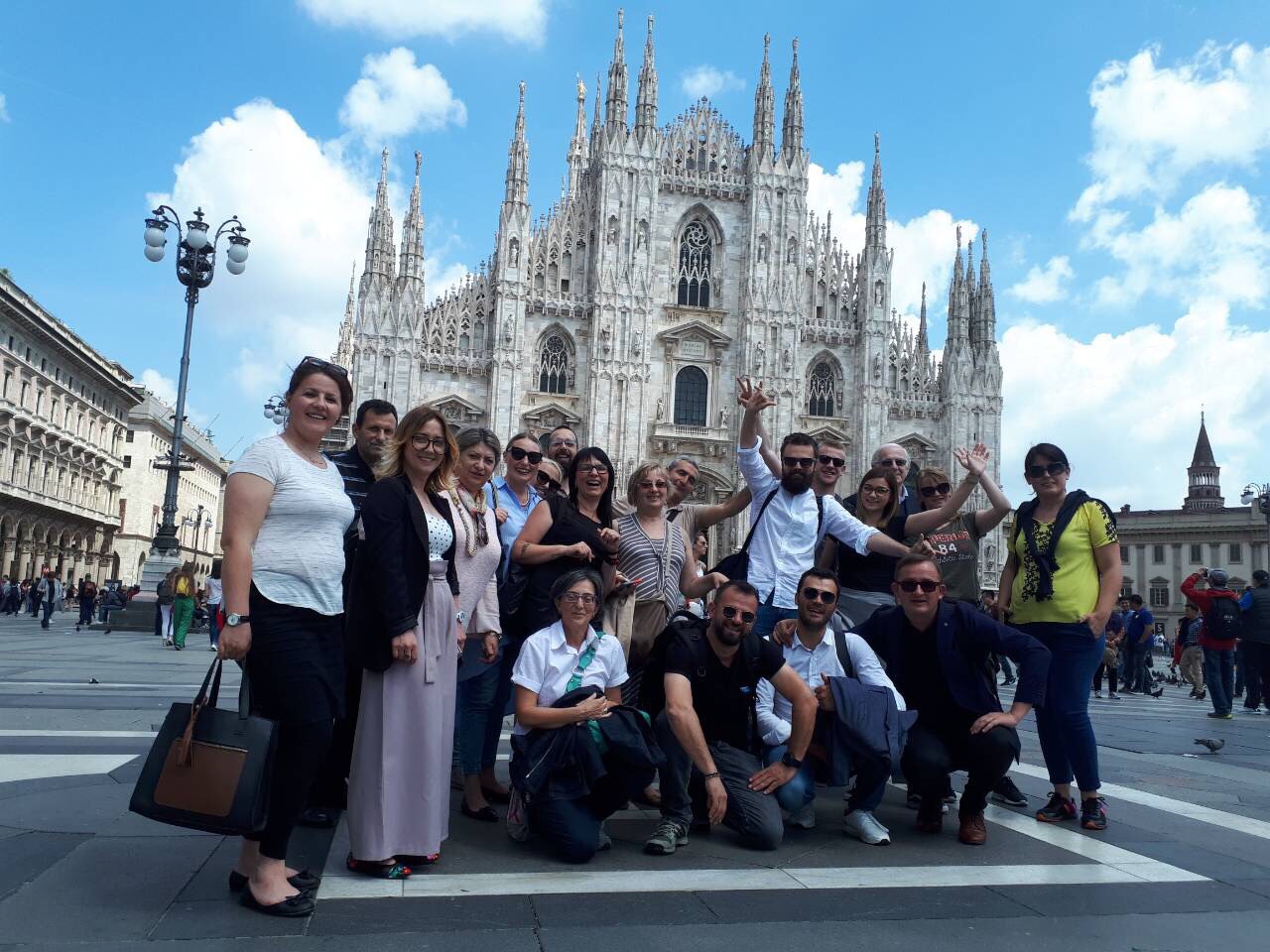In the framework of the project SOCIETIES a study visit to Milan – Italy has been organised from the 21st to the 25th of May. During the visit the participants had a chance to see the functioning of a system of social welfare, based on community services and social enterprises.
Other than the five national Caritas organizations involved in the project the participants of the study visit were also representatives of 15 association of persons with disabilities and with mental health problems from the countries of the region, whose associations received grants within this project.
Project SOCIETIES, financed by the EU, aims at helping the civil society organisations to strengthen their capacities and provide them with financial support for the implementation of local initiatives that would contribute to a better social inclusion of persons with disabilities and mental disorders in the South-Eastern Europe. Key element of the planned programme of capacity building are the study visits in the countries of the European Union. With this idea the study visit to Bulgaria has been organized last year, as the one in Italy this year
Association Psicologi per i Popoli nel mondo from Milan, who is a partner on the project, had the task to create a five day program. The program included visits to different cooperatives that provide services directed to persons with disabilities, mental or intellectual difficulties. Particulary interesting were the experiences of the cooperatives Lotta contro l’Emarginazione (Fight against Exclusion), Olinda and Arcipelago. All three cooperatives provide innovative social services to the nominated target group: from the services that aim to gaining autonomy, through residential services to services of work inclusion and different types of support to patients and families.
The participants also had a chance to visit the The Mario Negri Institute for Pharmacological Research, the High Assistance Residential Center of the Hospital Niguarda (Residential center for users with psychosocial disability), as well as Caritas Ambrosiana (Caritas Milan).
Anica Spasov – Nasa kuca (Serbia): It was a pleasure for me being part of this team. My impressions are very intense and they are related to different aspects of the visit. We saw different organizations, with numerous programs. The interesting thing is the way that the money follows the users and the way that services are being financed. We saw a very complex and functional state system, that is connected vertically and horizontally and a holistic approach to problem solving of individuals from vulnerable groups. We had enough time to get to the representatives of other CSOs, to learn more about the programs of Caritas organizations from all these countries. I think that as organizations we should focus more on our values and a holistic approach, so we could influence legal and system changes in the society more efficiently.
In Italy, we have seen many examples of good practices, community services, residential accommodation services, day care centres and countless examples of various forms of occupational therapy and social entrepreneurship for people with disabilities.
Helena Mikulić – In Spe Mostar (Bosnia and Herzegovina): During the visit I learned that local, regional or national government in Italy funds all these services in one way or another, which is completely different from the way in which organizations operate in Bosnia and Herzegovina. Still the conclusion is that organization from Bosnia and Herzegovina and other countries, are managing to carry out projects and activities with far less funds and this experience was conveyed to the Italian colleagues.
Perhaps the most valuable part of the study visit was meeting with wonderful colleagues from other South East European countries, sharing a similar environment and context, fighting for a better society for people with disability. The partnerships and friendships that we have been created will certainly produce concrete cooperation in the coming period.





Recent Comments